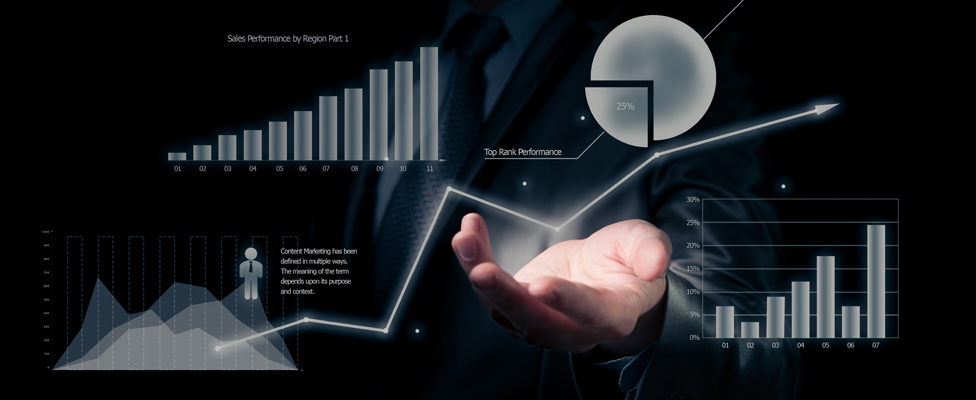
5 Minutes with a CEO: Tony Ayaz at Gemini
Analytics runs at the heart of many apps, but it needs to be simpler.
- By James E. Powell
- April 13, 2017
Tony Ayaz is the CEO at Gemini, a company that specializes in helping companies rapidly deploy, manage, and achieve true situational awareness across data and security solutions. In his career, Ayaz has helped build and scale numerous disruptive companies from start-up to IPO. Tony was the 21st employee at Splunk, driving the security and global sales strategy, serves the board of Zoomdata, and mentors early stage companies at http://founder.org.
In this interview, we discuss managing analysts, what's hype and what's not in the world of analytics, and what's ahead.
UPSIDE: What's one thing you think some leaders do wrong when managing analysts?
Tony Ayaz: When managing analysts or working with technical teams, some leaders do not empathize with the way analysts think, process information, and use analytical reasoning. We need to understand how analysts think about problems to truly understand their way of reasoning through complex challenges. Often, this is very different with technical and non-technical teams. Only after we empathize can we determine what additional support teams need, such as AI-driven software that complements their skill set and helps the team scale or additional communications training so teams can better function together.
I have found it helpful for managers to spend time with their teams as a group as well as engage with individuals one on one. This makes it easier to influence decisions, build comradery, learn each personality, and get consensus from the team. Once you get that common mutual team member's understanding on a project or task, you can do great things.
What trend or idea do you think is the most over hyped today in the corporate world -- be it about analytics or business in general?
Machine learning. Everywhere I turn I see machine learning being referred to as the panacea for analytical challenges, most recently for challenges in cybersecurity. Yet, it is not a new thing. These concepts are relevant and extremely valuable but they are an evolution of how smart companies build software today, not a revolution. As buzz words often do, the term machine learning has captured the imagination in a way that greatly overstates and sometimes mistakes its relevance.
For example, cybersecurity involves a large number of threat surfaces and constantly evolving attack strategies, which translates to complexity that is not easily understood simply by looking at patterns. Machine learning is an essential component for understanding and deciphering these patterns but not a silver bullet to solve security challenges. It must be complimented by contextual intelligence and a great deal of domain-specific human expertise.
Additionally, we in the industry need to do a better job of explaining machine learning and artificial intelligence (AI) as a whole and what it really means so it doesn't fall prey to just becoming a buzzword.
How are you, personally, using analytics in your day-to-day decision making?
Analytics drives our business. For example, we use a system we call OGSM (for objectives, goals, strategies, and measurement). It's a simple way to making sure everyone on the team is aligned in their goals and objectives. We measure the KPIs associated with this framework through software such as Salesforce, Pardot, DaPulse, and others. On a department level, we're driving decisions about marketing, sales, and product using analytics. I think having transparency with analytics is critical across all business units so everyone is aligned. Leveraging analytics and the process requires buy-in from everyone for it to be effective.
Where is data analytics/data science headed in the next few years within your organization? Within the world at large?
We will continue to use analytics to run our business and leverage it to advance capabilities in our products. Analytics will soon be embedded in every application rather than something you have to layer on top of existing apps. Analytics runs at the heart of many applications today, but I expect it to become more simplified and for a larger audience to use as part of their daily life - like using MS Word or opening an app. Rather than requiring special skills to access analytics, they will be represented without complexity.
The broader challenge for organizations is how to find the right ways to leverage AI and how to account for human involvement in a way that is seamless and balanced. Complex workflows don't usually originate and culminate using only algorithms. For example, fraud detection may originate with a machine-learning algorithm looking for patterns and anomalies but may require human involvement for final review or follow-up. Human elements must not become the weak link in the chain either in terms of latency or expertise.
What one thing do you wish your organization could analyze better (and why)?
Analyzing customer feedback in a simpler way would be helpful. There are many ways to do this, but nothing is very streamlined to allow us to address potential customer concerns faster and at a much more granular level. I believe this is one area where AI will be able to help in the future.
About the Author
James E. Powell is the editorial director of TDWI, including research reports, the Business Intelligence Journal, and Upside newsletter. You can contact him
via email here.